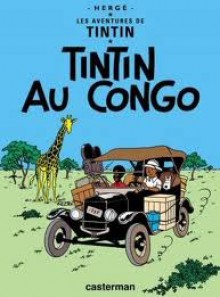
This is another collection of short stories staring the ace World War I pilot in his post World War II role as the head of the Scotland Yard Air Police. Yes, that person is Bigglesworth, otherwise known to his friends, and many adoring readers throughout the western world, as Biggles. However, unlike the other collection of short stories from his Scotland Yard days, these stories seem to be a lot broader in scope and do not seem to be replications of Conan Doyle's Sherlock Holmes short stories where you have a section that introduces the situation, a small piece of action, and then the rest of the story were the protagonist explains how he came to his conclusion.
In this collection of stories, we have Biggles going after some pirate treasure.
He busts open a watch smuggling racket.
As well as going after a diamond smuggling racket:
which happens to be smuggled into England in the stomach of monkeys.
There are a few things that I wish to say about this book that came out for me as I was reading it: the first being the diamond trade, and the second being about the watch smuggling.
It seems that the diamond trade back then was quite restricted, and it is interesting to see how it was viewed back in the 50s. These days (as I suspect was the case back then) diamonds are actually controlled by what I will call a legal cartel. Basically the diamonds that are mined are owned by a small group of people who pretty much lock them away and release them bit by bit to keep the price of the diamonds unnaturally high. I once went around work asking people whether they would still go and buy diamonds if they were worth something like $20.00 a carat, to which the common response was 'no'. Therefore, it is quite understandable that there would be an investigation into a diamond smuggling racket because by smuggling them into the country means that the capitalists who control the diamond trade are quite likely to lose out. Further, Johns seems to think that diamonds were only mined in South Africa however, ignoring the diamond fields here in Australia, there are many other countries in Africa where diamonds are mined, and since the regulations are non-existent one is almost led to believe that the diamond industry is run by a bunch of criminals. For more information on the diamond industry I would recommend the movie Blood Diamond (despite the fact that Leonardo DiCaprio is the leading actor).
The other thing is the thing about the tariffs, which was why Biggles was going after the watch smugglers. Personally this made absolutely no sense to me because most tariffs have been pulled down now so that there is no duty on imports (well, actually there is, which is why they still have duty free shops, but with the advent of the internet you can easily import things without having to pay a duty, unless of course the imports happen to be alcohol or tobacco). That is not entirely true because there are still countries (such as the United States) that have import duties, or provide subsidies to certain industries (such as farming) but in general, most goods these days can be brought into a country without any need to pay any extra costs (and in some cases they are GST free).

 Log in with Facebook
Log in with Facebook 






